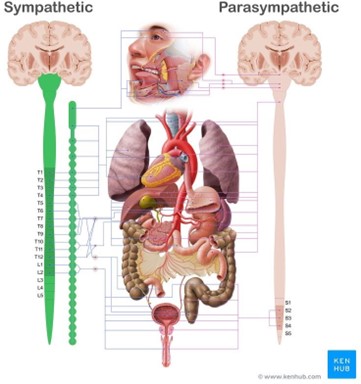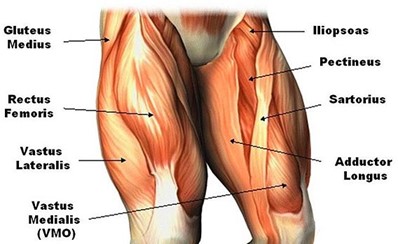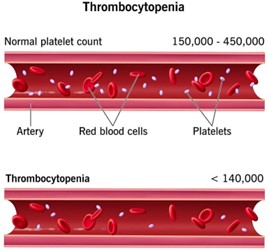What occurs when the sympathetic nervous system is stimulated?
Uterine activity
Cardiac output
Pancreatic activity
Gastrointestinal activity
The Correct Answer is B
When the sympathetic nervous system is stimulated, it activates the "fight or flight" response, which prepares the body for physical activity or stressful situations. This response includes several physiological changes, such as:
Increased heart rate and cardiac output: The sympathetic nervous system releases adrenaline and noradrenaline, which increase heart rate and cardiac output to provide more oxygen and nutrients to the muscles.
Decreased uterine activity: The sympathetic nervous system inhibits uterine contractions to prevent
premature labor.
Decreased pancreatic activity: The sympathetic nervous system inhibits insulin secretion and promotes glucagon secretion to increase blood glucose levels.
Decreased gastrointestinal activity: The sympathetic nervous system inhibits digestive functions to divert blood flow to the muscles.

Nursing Test Bank
Naxlex Comprehensive Predictor Exams
Related Questions
Correct Answer is D
Explanation
The quadriceps femoris group is a group of four muscles located in the anterior compartment of the thigh. These muscles are responsible for extending the leg at the knee joint. The four muscles that make up the quadriceps femoris group are the rectus femoris, vastus medialis, vastus intermedius, and vastus lateralis.
The vastus lateralis is the largest of the four muscles and is located on the lateral side of the thigh. It originates from the greater trochanter of the femur, the lateral lip of the linea aspera, and the lateral intermuscular septum. It inserts into the patella and the tibial tuberosity via the patellar tendon. The vastus lateralis is responsible for extending the leg at the knee joint and is also involved in stabilizing the patella.

Correct Answer is A
Explanation
Also known as platelets, are cell fragments in the blood that play a crucial role in blood clotting or coagulation. When a blood vessel is injured, thrombocytes are activated and clump together to form a platelet plug that stops the bleeding. They also release substances that promote blood clotting and help to repair the damaged blood vessel. Therefore, the function of thrombocytes is important in preventing excessive bleeding and promoting wound healing. Options a, c, and d are incorrect because they do not describe the function of thrombocytes.

Whether you are a student looking to ace your exams or a practicing nurse seeking to enhance your expertise , our nursing education contents will empower you with the confidence and competence to make a difference in the lives of patients and become a respected leader in the healthcare field.
Visit Naxlex, invest in your future and unlock endless possibilities with our unparalleled nursing education contents today
Report Wrong Answer on the Current Question
Do you disagree with the answer? If yes, what is your expected answer? Explain.
Kindly be descriptive with the issue you are facing.
